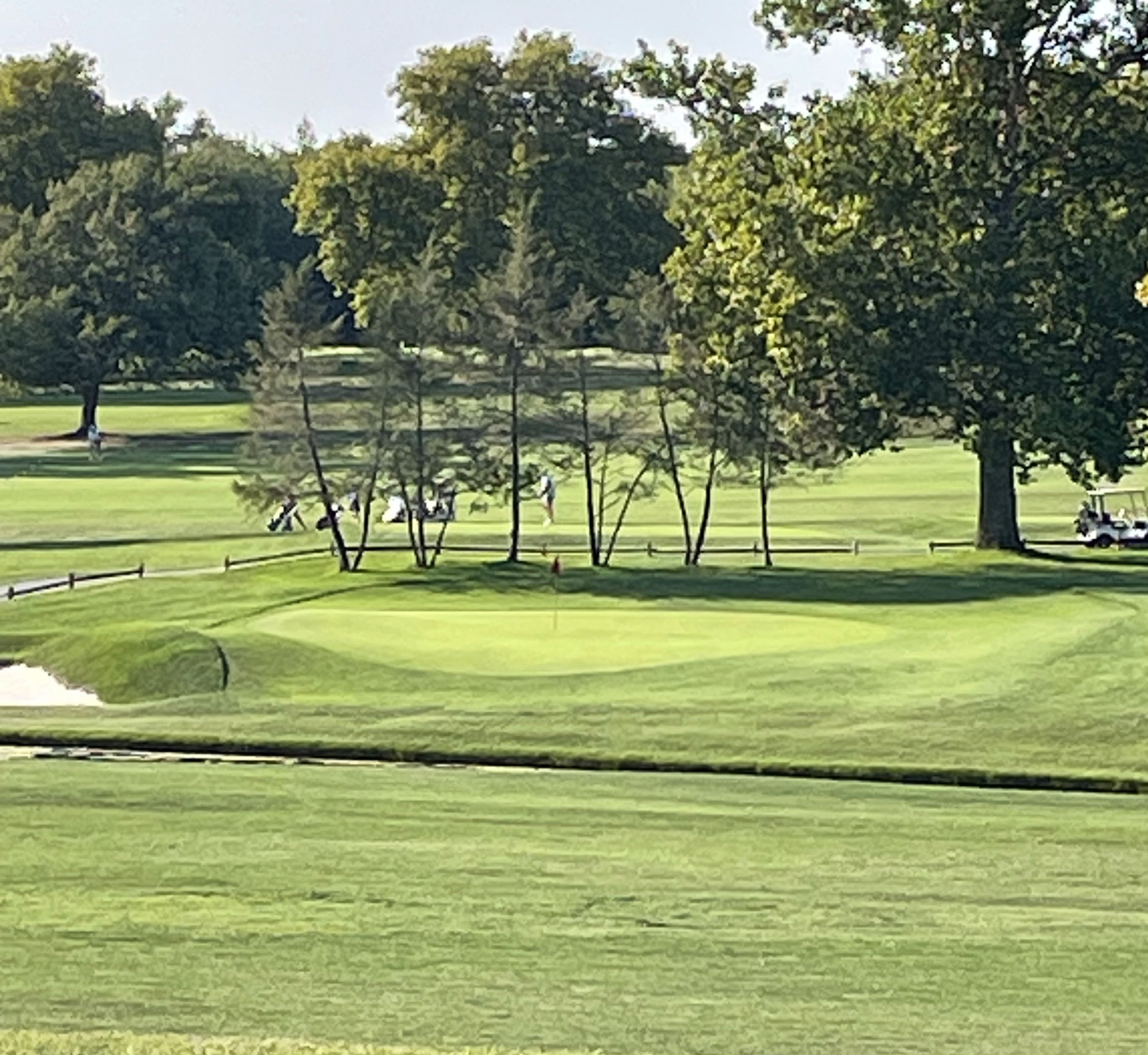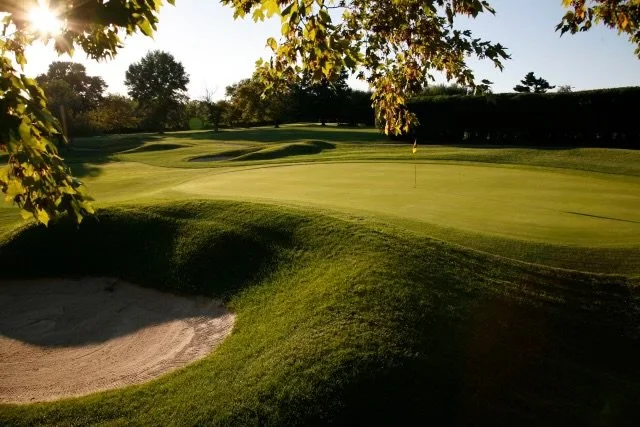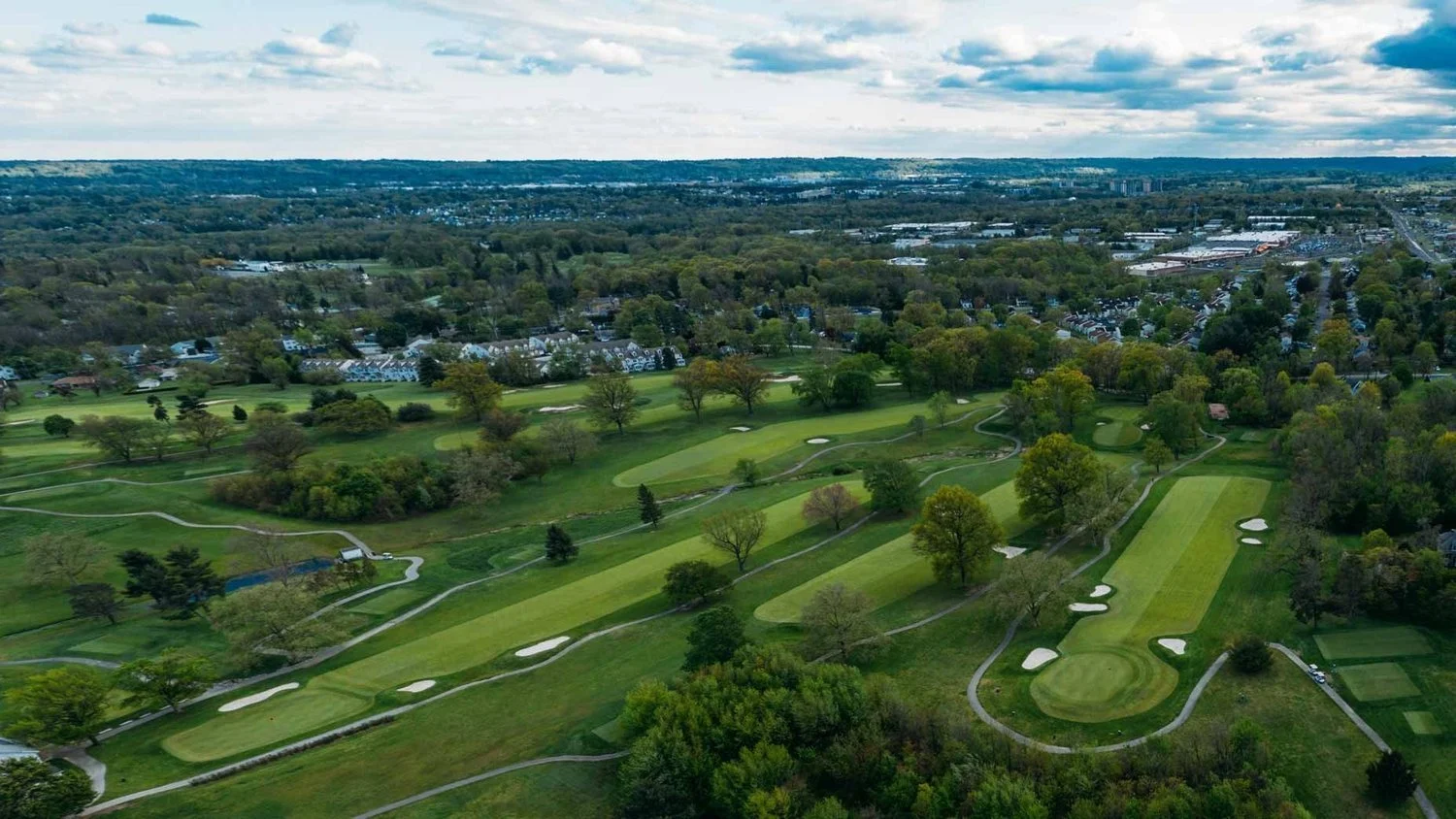BEAR TRACE (HARRISON BAY)
Course Architect: Jack Nicklaus
Year Opened: 1999
Location: Harrison, Tennessee
Slope: 132. Rating: 73.8
Par: 72
Yardage: 7,140
Hole-by-Hole: 1 - Par 4 420 Yds 10 - Par 4 417 Yds
2 - Par 5 579 Yds 11 - Par 3 173 Yds
3 - Par 4 428 Yds 12 - Par 5 559 Yds
4 - Par 3 184 Yds 13 - Par 4 416 Yds
5 - Par 4 415 Yds 14 - Par 3 176 Yds
6 - Par 5 536 Yds 15 - Par 4 374 Yds
7 - Par 4 439 Yds 16 - Par 4 420 Yds
8 - Par 3 202 Yds 17 - Par 5 534 Yds
9 - Par 4 434 Yds 18 - Par 4 434 Yds
Par 36 3,637 Yds Par 36 3,503 Yds
Awards Won: #2 Public Course in Tennessee (GolfWeek, 2004),
Four stars by Golf Digest (Best places to play, 2004),
Top 100 under $100 to Play (Travel & Leisure Golf, 2002),
Honorable Mention Top 10 You Can Play (Golf Magazine, 2000).
Website: www.beartrace.com/harrison
HISTORY: Only open a handful of years, The Bear Trace at Harrison Bay has
already received its own share of accolades. How about, one of the 100 best
bargain courses in the country by Maximum Golf or four stars by Golf Digest's
Best Places to Play, or, well...you get the picture. Course architect Jack
Nicklaus has designed a group of courses in Tennessee called The Bear Trace,
which rivals the Robert Trent Jones Trail in Alabama. Harrison Bay is one of
those five Nicklaus venues in the Volunteer State that address the issues of
quality, affordability and playability. The course, which features Bermuda
fairways and pine and hardwood trees lining the fairways, has been referred to
as "the best natural piece of land for a golf course." What also makes the
course so beautiful is the views of Harrison Bay (Chickamauga Lake) throughout
the venue.
REVIEW: The course opens up with a solid par four stretching 420 yards, devoid
of trouble off the tee, as the fairway opens up to 45 yards across. Left side
of the fairway will set up a mid- to short-iron approach to a green flanked by
sand. Miss right of the bunker and you'll be left with a difficult uphill
shot, as the green slopes down towards Chickamauga Lake. Make anything worse
than par here is a no-no. The second hole is the longest on the course at 579
yards from the gold tees. A wide, receptive fairway awaits your tee ball and
second shot, as you set up your short approach to the green. The backdrop of
the putting surface is once again Chickamauga Lake, so don't miss long or
right while you admire the beautiful sights. Although lengthy, the second is a
definite birdie chance. One of the toughest driving holes on the course, the
third is quite demanding with a pair of fairway bunkers guarding the corner of
the dogleg right. Although the fairway is wide, there is no room for error, as
both sides are guarded by tall trees. A mid to short iron is left to a green
guarded right by sand and water and left by a grassy hill. Par is a real good
score on three. The first of four solid par threes, the fourth is a dandy, set
along side of the Lake. A mid iron is needed to negotiate the long putting
surface protected on the right by a deep bunker. The green slopes from back-
to-front and left-to-right, so even if you bail out left, an up-and-down is
not automatic. One of the easiest holes on the course, the fifth still
requires a properly placed tee shot, as the hole doglegs to the left. A short
iron will work wonders from the right side of the fairway to a green that
slopes severely from back-to-front. Keep the ball below the hole to set up a
birdie chance. The snake-like sixth is an outstanding par five that gives the
player quite a few options. Driver or fairway metal off the tee is the play.
With the big stick, the player can cut the right corner off the tee in efforts
to get home in two. Your second shot now must negotiate a large bunker on the
left side of the landing area. Play short and you'll have a seven- to nine-
iron remaining. Go for the gusto, and you'll set yourself up for birdie. The
putting surface is protected by two bunkers right and one, short and left.
Take advantage of the fairly flat green and make birdie, but beware, miss long
and left and double-bogey enters the equation. The seventh will require length
and accuracy off the tee. The longest par four on the course, the hole doglegs
to the left and your tee shot must favor the left side, as sand is placed
strategically on the right. Your second shot will now play uphill to an
elevated green protected on the right by a pair of parallel bunkers. Bail out
left of the putting surface if you must, otherwise you'll have to take your
medicine if you miss right. If the first six holes didn't grab your attention,
the seventh certainly will. The eighth is the only one-shotter on the course
over 200 yards. The hole plays slightly shorter, as its downhill from the tee,
so club selection is key. Two deep bunkers guard the putting surface, one
short and left and the second, center-right. The long green is quite
challenging, especially with a back-left pin placement. Miss right and you'll
have virtually no shot of getting up and down. Most courses rate par threes as
the easiest holes on the scorecard, but the eighth is the rated seventh most
difficult. The No. 1 handicap hole on the course, the ninth is a dogleg left
par four that can play as long as 434 yards. You tee shot must favor the left
side, however be wary of the trees guarding the corner of the dogleg. A medium
iron will remain to a shallow, uphill green protected on the right by a deep
bunker. There is no shame in making bogey on nine, but par would be nice.
The closing nine holes begin with a solid par four. Your tee shot must avoid
the fairway bunker on the right side to set up the best possible angle to the
green. The putting surface is protected on the left-front by a bunker, but any
pin position other than back-left will provide the player with a simple
approach to set up a birdie attempt. Although water covers the entire left
side of the 11th, it does not come into play. This par three is the shortest
on the course, but plays quite difficult with bunkers, left, right and deep.
Not a hole to be greedy, just make your par and move on. The 12th is one of
those holes were you can just rip it off the tee, as a wide fairway awaits
with no bunkers in site. It's the second shot that needs to be struck
carefully. Play down the right side of the fairway, over a pair of bunkers to
set up the best approach to a green that's angled off to the left. The putting
surface slopes left to right, but birdies can be had. A demanding tee shot is
needed on the 13th. Although not long, the hole bends to the right with trees
guarding both sides of the fairway. Water in front of the tee box does not
come into play, however a bunker in the landing area on the left side does.
After negotiating this narrow strip, a low- to mid-iron awaits to a green
bunkered only on the right. Not a hole to fool around with, play to the
center-left of the green and take a par. One of the most picturesque holes on
the course, the 14th is an outstanding par three. From the tee, the hole is
all carry over water with Chickamauga Lake down the left side. With the wind
blowing in and from the left, this hole can be quite a "Bear". If you must,
there is plenty of room to bail out on the right, so work on your short game.
The only par four under 400 yards, the 15th requires an accurate tee shot,
thus setting up a simple approach to the green. Take a fairway metal or long
iron off the tee, leaving just a wedge to a kidney-shaped green protected by a
trio of sand traps. When all is said and done, do not leave this hole with
anything worse than a par. With all do respect to the No. 1 handicap hole on
the course (9th), the 16th is by far the most demanding at Bear Trace. A big
draw is needed to negotiate this dogleg left that slopes downhill past the
landing area and uphill to the green. Make sure you take enough club to reach
the putting surface, as it plays at least one club more than you think. Sand
fronts the green, making a back-right flag most difficult. Making par here is
a miracle and birdie, well that's an act of god! Wide landing area, a
reachable par five and no water, that relates to a possible birdie chance at
the 17th. The shortest of the four par fives, this hole doglegs to the right
with an elevated tee box. After a successful tee shot, the hole slopes down to
the right with ample room to lay up or for the big hitters, taking a shot at
the green. The putting surface is wide open in front, as the two bunkers flank
both sides. Here's a chance to get one back as you head to the home hole.
You'll be hard pressed to find a finer finishing hole in the area and that
includes The Honors Course or Black Creek. The tee shot is played uphill to a
plateau that affords an outstanding view of the lake and the putting surface.
Miss left off the tee and you'll need a shovel to recover from the sand, right
and you'll require a chain saw to carve through the trees. Your second shot is
downhill to the green, protected by a pair of bunkers on the left side. A
back-left pin will bring the water into play if you're to aggressive, so play
right, avoid the trouble and bring home your round with a par.
Beautiful topography, excellent conditions, forgiving fairways, numerous tee
boxes, accommodating staff and a quick pace of play, what more could one ask
for? The Bear Trace at Harrison Bay has all of that and more. Minutes from
downtown Chattanooga, Harrison Bay is a golfer's dream. From 5,300 to 7,100
yards, this course can be played by all levels. In a word, playability. Don't
be misled, this is also a solid track for even the most experienced player.
Water on a dozen holes, tree-lined fairways and undulating greens can make
even the best of players struggle. One item I forgot to mention, the price.
Get this, peak rates are just $62.00, and that includes the cart. Getting on
the aforementioned Honors or Black Creek courses will be next to impossible,
so book your time at Harrison Bay and you won't be disappointed.







